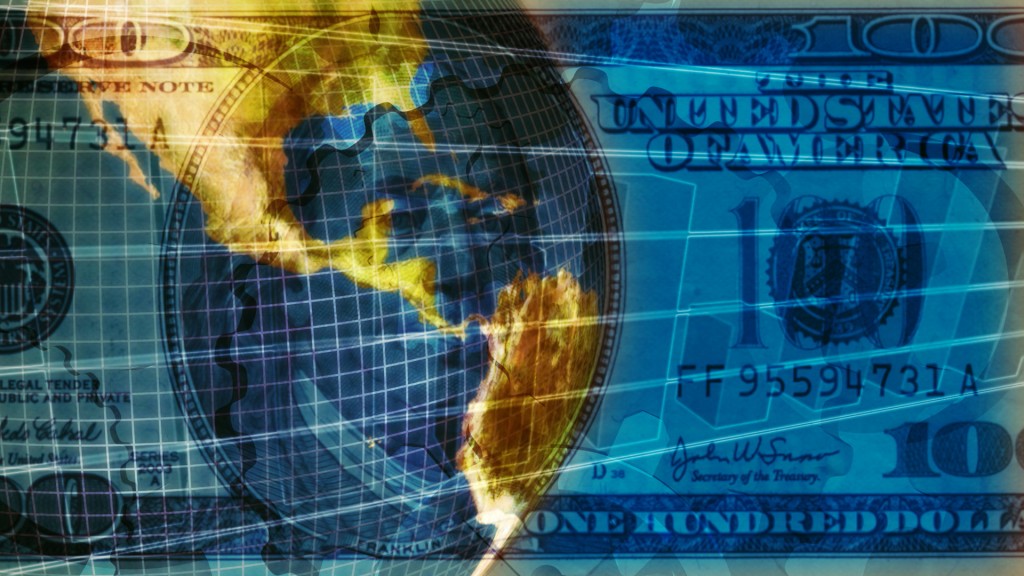 By Anna Hunt
By Anna Hunt
It is clearly evident that the U.S. economy is rapidly deteriorating, considering reports of declining business sales, increased commercial bankruptcies and Chapter 11 filings, accelerating employment problems, the largest federal debt in the country’s history topping $19 trillion, not to mention mounting U.S. household debt (averaging at $15,762 in credit card debt and $130,922 in total debt). For many people, it’s easy to get excited about a rise in the stock market, but a look at the overall U.S. economy gives credence to the possibility of an economic collapse.
For now, many of us still have a steady income and live quite comfortably, and, luckily, find ourselves in a position to prepare for financial hardship. If you are ready to accept that the signs pointing towards the deterioration of the U.S. economy are real, and you realize that your local and federal governments doesn’t really have to resources or plan to take care of your family should a financial crisis ensue, here are 5 things you can do today to start preparing.
1 – Reduce Your Debt and Expenses
Getting out of debt can be one of the most liberating experiences, especially if you’ve been in debt since you become independent of your parents. The first step to reducing debt is cutting out unnecessary expenses, which frees up some of your income so you can pay off any lingering credit card balances (or pay off large sums above your minimum payments), and pay off your car and small loans. Take other simple steps like stopping your credit card use – which may mean you only use the cash you have on hand.
A financial crisis doesn’t necessarily mean complete societal anarchy, but you are more likely to lose your job; and your living costs, such as groceries, utilities and gasoline, might increase significantly. Last thing you’ll want is the stress of repaying your debts during such times.
2 – Learn to Grow Food and Find a Place to Grow It
Food is one of those essentials that we often take for granted. But what would you do if your local supermarkets shut their doors or the delivery trucks stopped coming? Less than a century ago, nearly everyone know how to grow food and raise at least some type of farm animals. But today, many people don’t even know how to cook a healthy meal, much less actually grow food.
Start learning today. Get a few good resource books – Vertical Gardening: Grow Up, Not Out, for More Vegetables and Flowers in Much Less Space and Apartment Gardening: Plants, Projects, and Recipes for Growing Food in Your Urban Home are great for beginners – and start a garden this spring. Don’t wait until you’re desperate for a decent harvest. If you’ve already got a good handle on keeping a garden, start a neighborhood garden, so you can help your neighbors, learn new skills from others, and make some friends along the way. During any crisis, knowing people in your community that you can depend upon will help not only survive but also thrive.
Another challenge when it comes to growing food is limited space. For anyone with a house, your yard can turn into a food-producing garden within a short time as long as you’re willing to let go of the lawn and get your hands dirty. If you can afford it, perhaps purchase an empty lot nearby your home (although if you’re already carrying debt, perhaps it’s best to put your resources towards paying off what you owe, first). Luckily, these days there are many innovations in gardening, such as vertical gardens, that allow us to use small and indoor spaces to grow ample amounts of food. Get on YouTube, do some research reading the books mentioned above, and get creative.
3 – Store Water and Supplies
Ideally, in an emergency situation, especially one such as an economic collapse that might last over a longer period of time, having an alternate source of clean drinking water would be ideal. But, frankly, the majority of us don’t have access to a well or clean water spring. Storing water and using various water purifying supplies, such as germicidal tablets, are a good way to prepare for those times when basic services such as electricity and water are shut off due to shortages.
Long-term storable food and other supplies such as warm clothing, alternate cooking method, hygiene products and basic medications, are other essentials that you might consider as part of your preparedness supply. This way you’ll be prepared should deliveries to your local stores be disrupted, if your economic situation has you struggling to keep up with prices, or if people around you start to panic.
4 – Invest in Gold and Silver
Keeping all of your assets tied to pension plans, 401(k)s and saving accounts in the U.S. financial institutions won’t guarantee you a steady income during a financial crisis. These corporations are tied to a fiat currency, so your investments are not protected from inflation. Yet, gold and silver coins will continue to hold their value regardless of the Federal Banking System or the dynamics within the global monetary scheme.
5 – Take Care of Yourself and Your Home
 Physical stamina, the ability to defend yourself, and knowing how to protect your home are all important aspects of preparedness. Taking care of your overall health and well-being, both physical and mental, are likely to help you stay competent in handling challenging situations, when life may not be as cozy as it is today. If you’re living in highly populated urban areas, it’s important to consider that others may not be prepared and are likely to turn to crime and violence to acquire certain necessities. Here is another reason why having friends throughout your neighborhood may become a valuable resource during difficult financial times.
Physical stamina, the ability to defend yourself, and knowing how to protect your home are all important aspects of preparedness. Taking care of your overall health and well-being, both physical and mental, are likely to help you stay competent in handling challenging situations, when life may not be as cozy as it is today. If you’re living in highly populated urban areas, it’s important to consider that others may not be prepared and are likely to turn to crime and violence to acquire certain necessities. Here is another reason why having friends throughout your neighborhood may become a valuable resource during difficult financial times.
Anna Hunt is co-owner of OffgridOutpost.com, an online store offering GMO-free healthy storable food and emergency kits. She is also the staff writer for WakingTimes.com. Anna is a certified Hatha yoga instructor and founder of Atenas Yoga Center. She enjoys raising her children and being a voice for optimal human health and wellness. Visit her essential oils store here. Visit Offgrid Outpost on Facebook.
Sources:
- https://www.activistpost.com/2016/05/economy-deteriorating-as-stock-market-soars.html
- https://www.nerdwallet.com/blog/credit-card-data/average-credit-card-debt-household/
This article (Top 5 Things to Do Now, Before Another Financial Crisis) was originally created and published by emergency food supplier Offgrid Outpost and is published here under a Creative Commons license with attribution to author Anna Hunt and OffgridOutpost.com. It may be re-posted freely with proper attribution and this copyright statement. Please contact online@offgridoutpost.com for more info.
Affiliate Disclosure: OffgridOutpost.com is a participant in the Amazon Services LLC Associates Program, an affiliate advertising program designed to provide a means for sites to earn advertising fees by advertising and linking to amazon.com.

Solidarity is the most important act when bad time approach:
6. CREATE a pool of friends / family members / people around you
7. SHARE AND GIFT as much as you can
Good advice, but developing a social network (real people in real time face to face not digital) ought to be included in the above list.
Bless you for this article and bless all who oppose the tyranny of unholy.